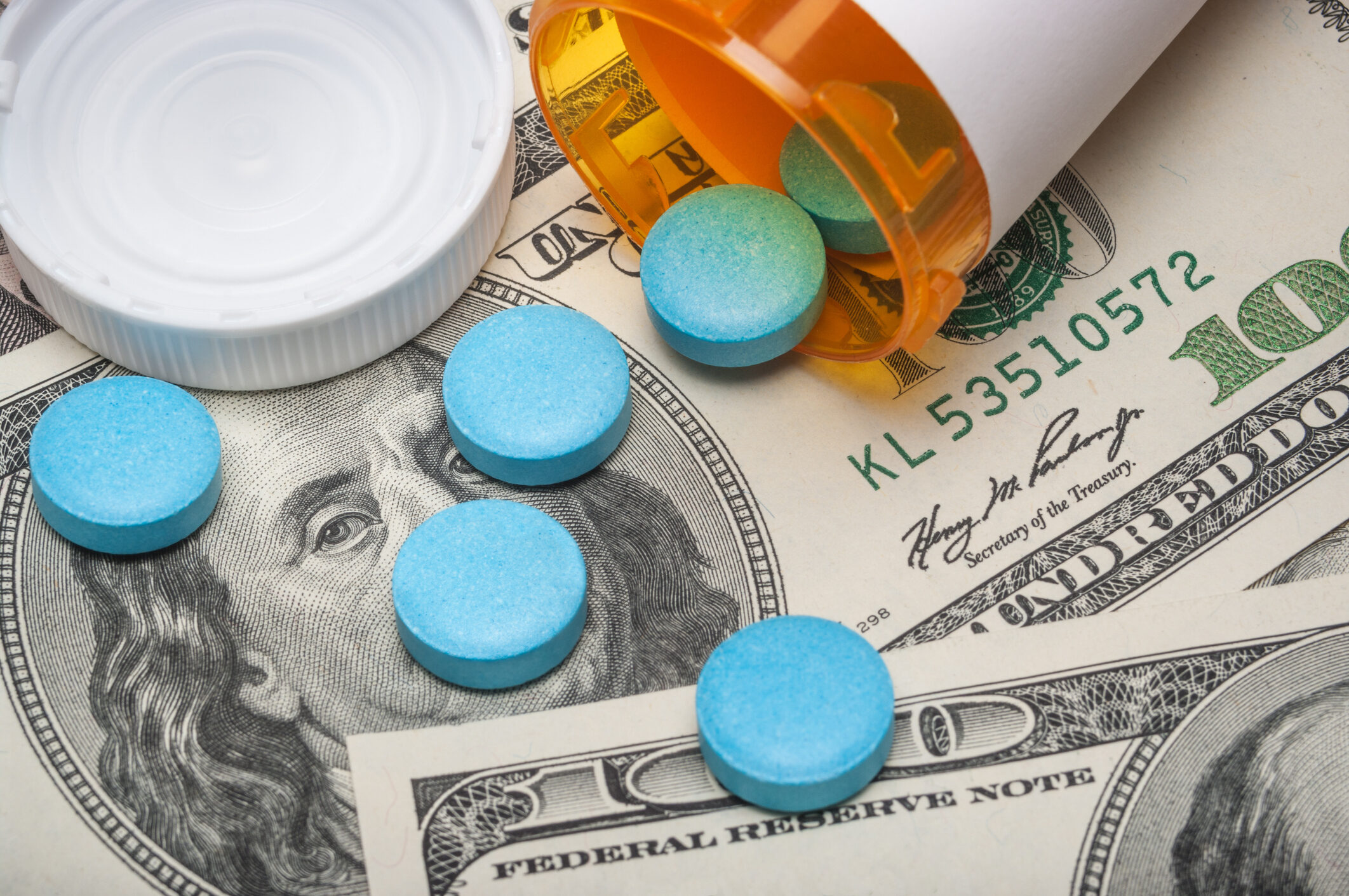© 2024 CSRXP- All Rights Reserved

SECOND OPINION: BIG PHARMA DOUBLES DOWN ON BLAME GAME STRATEGY AMID UNPRECEDENTED MOMENTUM TO LOWER RX PRICES
Dec 3, 2021
New PhRMA Ad Campaign Aims to Dodge Accountability, Push Pharma-Backed Rebate Rule That Would Hike Health Care Premiums, Boost Drug Company Profits
The pharmaceutical industry is doubling down on a misleading blame game strategy meant to deflect accountability for the industry’s own egregious practices amid unprecedented momentum in Washington to lower prescription drug prices.
A new, seven-figure ad campaign from Big Pharma’s principal trade association, the Pharmaceutical Researchers and Manufacturers of America (PhRMA), attempts to shift the attention of policymakers onto pharmacy benefit managers (PBMs) and others in the drug supply chain. The ad campaign uses misleading rhetoric to draw attention away from brand name drug companies pricing and anti-competitive practices and instead pushes lawmakers to reverse course, and implement, rather than repeal, a policy called the Rebate Rule that would do nothing to lower drug prices, hike premiums on America’s seniors and boost Big Pharma profits.
Implementation of such a policy targeting PBM rebates would also eliminate the only real check on the pharmaceutical industry’s unilateral control over prices. That is why the Rebate Rule has been a key policy component of Big Pharma’s blame game strategy of dodging accountability for the industry’s egregious pricing practices and pointing a finger at others in the supply chain for years.
The fact is brand name drug companies are solely responsible for setting and hiking list prices on their products and Congress must remain focused on solutions that hold Big Pharma accountable to lower drug prices for the American people.
Here are the facts on the Rebate Rule policy pushed by Big Pharma in the industry’s new ad campaign.
The rule would do nothing to lower out-of-control prescription drug prices:
- Do Nothing To Lower Out-Of-Control Prescription Drug Prices: Government actuaries predict drug manufacturers will keep at least 15 percent of what they would have offered in rebates, in order to offset their increased share of covering the Medicare Part D “donut hole” as outlined in the Bipartisan Budget Act of 2018. Further, actuaries forecast drug prices increasing before finally leveling off, but do not foresee prices decreasing. (Center For Medicare & Medicaid Services Office Of The Actuary, Memo On Proposed Safe Harbor Regulation, 1/31/19)
It would increase premiums for Medicare Part D beneficiaries:
- Increase Premiums On American Seniors And Patients With Disabilities By Between 25 and 40 Percent: Analysts at the Congressional Budget Office (CBO), Centers for Medicare and Medicaid Services (CMS) and Avalere Health all agree that under the Rebate Rule, Medicare Part D premiums would increase between 25 and 40 percent. (Center For Medicare & Medicaid Services Office Of The Actuary, Memo On Proposed Safe Harbor Regulation, 1/31/19; Congressional Budget Office, Incorporating The Effects Of The Proposed Rule On Safe Harbors For Pharmaceutical Rebates In CBO’s Budget Projections, 5/2/19; Avalere Health, Costs for Taxpayers Could Skyrocket Under Proposed Rebate Rule, 4/8/19)
It could even increase Part D beneficiaries’ out-of-pocket costs:
- Increase Out-Of-Pocket Costs For Medicare Part D Beneficiaries: While there is widespread agreement the Rebate Rule would increase premiums, there is also the potential it would actually also increase out-of-pocket costs. In fact, analysts at Avalere Health found the Rebate Rule could increase out-of-pocket costs for Medicare Part D beneficiaries by as much as $36.5 billion. (Avalere Health, Costs for Taxpayers Could Skyrocket Under Proposed Rebate Rule, 4/8/19)
Its implementation would cost taxpayers at least $200 billion in increased spending:
- Cost American Taxpayers Between $200 Billion and $400 Billion Dollars: Analysts at the CBO, CMS and Avalere Health all agree the proposed rule would come at a tremendous cost to American taxpayers, with a price tag ranging from nearly $200 billion to more than $400 billion from 2020 to 2029, making it one of the most expensive regulations in U.S. history. (Center For Medicare & Medicaid Services Office Of The Actuary, Memo On Proposed Safe Harbor Regulation, 1/31/19; Congressional Budget Office, Incorporating The Effects Of The Proposed Rule On Safe Harbors For Pharmaceutical Rebates In CBO’s Budget Projections, 5/2/19; Avalere Health, Costs for Taxpayers Could Skyrocket Under Proposed Rebate Rule, 4/8/19)
And it would hand the pharmaceutical industry a more than $130 billion bailout in boosted revenues:
- Hand Big Pharma A $137 Billion Bailout – Rewarding Drug Companies’ Price Hikes And Anti-Competitive Tactics: Government analysis finds that under the rule, Big Pharma will keep the dollars they currently pay in rebates and use the rule as an opportunity to line their own pockets with an increased $137 billion in overall drug spending – a bailout rewarding their anti-competitive and price-gouging behavior — at a time when the industry is already receiving billions of dollars in support for research and development of COVID-19 treatments and vaccines. (Center For Medicare & Medicaid Services Office Of The Actuary, Memo On Proposed Safe Harbor Regulation, 1/31/19)
Lawmakers must cut through Big Pharma’s blame game rhetoric, repeal the Pharma-backed Rebate Rule and advance market-based solutions to lower prescription drug prices by holding brand name drug companies accountable.
Learn more about the misguided Rebate Rule HERE.
Read more on market-based solutions to hold Big Pharma accountable and lower prescription drug prices HERE.
